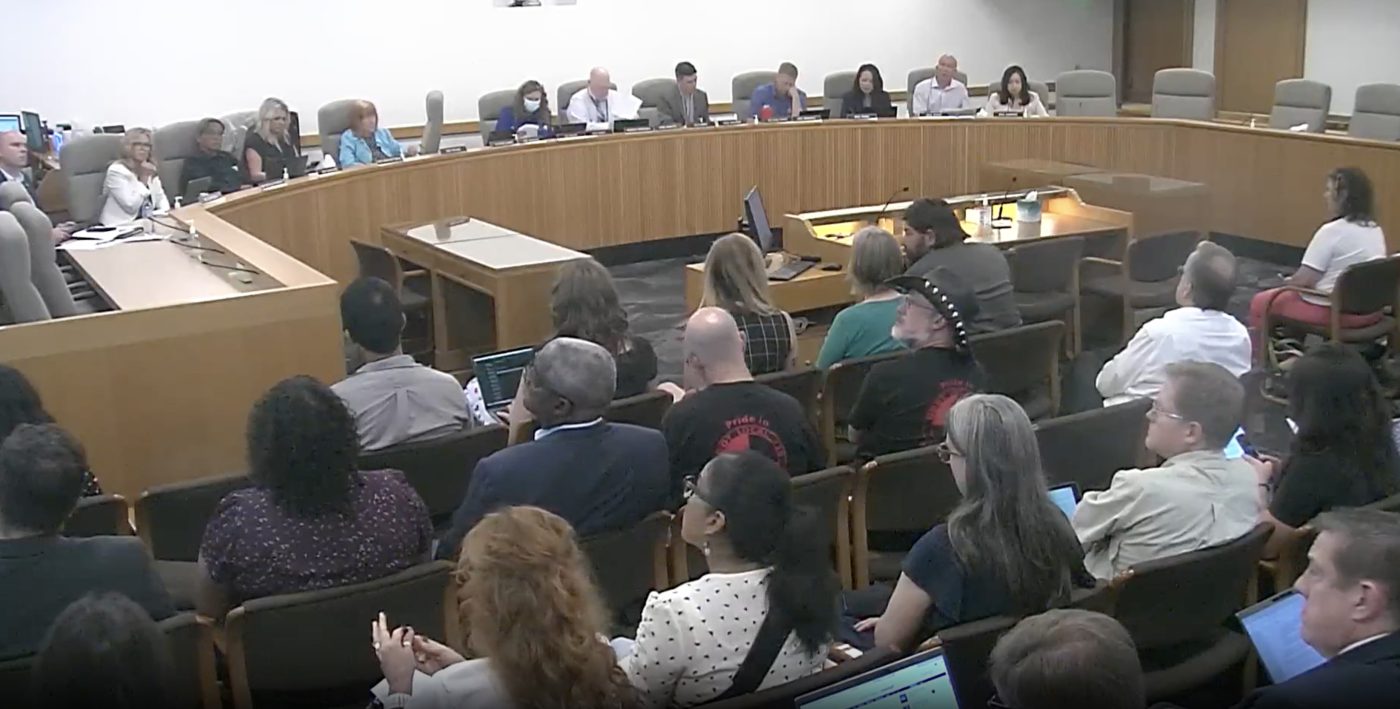Oregon lawmakers passed a new version of a transportation funding package out of committee after a four-plus hour long marathon work session and public hearing on Sunday. And even though House Bill 3991 passed with changes that aimed to curry favor with Republicans, none of them voted in support of the bill.
Even though Democrats have a supermajority with control of the House, Senate and the Governor’s office; Republicans used their last piece of leverage — their ability to give Democrats the quorum needed to convene the special session — as a bargaining tool to force a change that further weakened transit funding and stripped the state’s power to levy minute increases to the gas tax without a vote of the legislature under certain circumstances.
As a result of these last minute negotiations to ensure Republicans showed up on a holiday weekend, Democrats agreed to make the payroll tax that funds transit — which the bill increases from 0.1% to 0.2% — temporary. Initially proposed as a permanent increase, it would now sunset in 2028.
In addition to a short-term increase in transit funding, the bill would: implement accountability measures for the Oregon Department of Transportation, give the state economist the authority to lower the gas tax and/or weight-mile tax to make sure it stay in balance for light and heavy vehicle owners, require e-car owners to enroll in a pay-per-mile program in 2028, increase the gas tax by six cents, increase vehicle title and registration fees, repeal the tolling program (but not the state’s authority to levy tolls in the future), increase funding to roadside rest areas, and simplify how truckers calculate weight-mile fees.
The bill passed 7-5 on a party line vote after lawmakers heard dozens of Oregonians testify for and against it.
One person they didn’t hear from was Governor Tina Kotek. She wasn’t in the building. That fact gave Republicans and their supporters online a chance to lambaste the governor as being disrespectful, uninterested and out-of-touch. Asked by Republican Senator Daniel Bonham where Governor Kotek was, her Transportation and Infrastructure Advisor Kellly Brooks said, “I am not going to disclose the governor’s exact whereabouts right now, but she has been intently engaged in working with me on today’s materials, and I’m fairly confident watching this right now.”
TriMet General Manager Sam Desue was watching. In his online testimony he said he supported the bill, but told members of the Joint Special Session Committee On Transportation Funding, “Anything less than a permanent increase [to transit funding] will result in deep cuts to transit service by the end of this decade.” Desue was aware of the amendment to sunset the payroll tax increase and remarked that, “A sunset of the 0.1% increase in 2028 will not leave enough time to generate replacement revenue from other sources, while inflation will continue to put pressure on the cost of providing service.”
Republicans spent quite a bit of time Sunday poking holes in transit and the state’s efforts to fund it. Rep. Shelly Boshart Davis implied that the state is merely subsidizing transit agencies who choose to offer free fares and who want to do nothing but purchase electric buses with it. Senator Daniel Bonham implied the funding wasn’t need because ridership on transit was higher before 2017 before ODOT had a dedicated stream of funding for it. Committee Vice-Chair Christine Drazan implied that rural people could just switch to taxis and rideshare providers, instead of public transit.
Later in the hearing, Rep. Drazan maintained that Republicans weren’t trying to cut transit funding. “Transit is an essential part of our transportation system,” Drazan said. “The fact that I want to have a conversation about how we pay for it shouldn’t be confused with the fact that I believe we need it.” Either Drazan is more of a transit supporter than it appears, or she’s trying to sound more moderate on transportation ahead of a run for governor in 2026. Either way, she and her party have seriously weakened transit in Oregon.
The other change made yesterday was to how the state handles the constitutional requirement for car and truck drivers to pay an equal amount for road use. A provision in the original bill would have given the Department of Administrative Services (DAS) the ability to make small adjustments in the gas tax (what car drivers pay) and weight-mile tax (what truckers pay) if the state’s analysis showed the ratio was too imbalanced. The original bill would have let DAS raise or lower the taxes to achieve equity. In a compromise with Republicans, a successful amendment passed that only gives DAS the ability to lower the taxes.
With these changes — along with the fact that the bill will now raise only around $4.5 billion instead of the $15 billion Democrats and the governor initially sought — the bill was finally successful.
Republicans on the committee said they couldn’t stomach voting for any new increase in taxes. And Democrats who voted in support of it offered only tepid enthusiasm. Senator Khanh Pham described her vote as a “courtesy yes.” “It just kicks the can down the road for both road maintenance safety and also for public transit,” Pham continued. “So I am voting for this reluctantly because I can’t, in good conscience, jeopardize the critical work that is needed on our state roads right now, and I can’t deprive our state or transit agencies of even two years of funding right now.”
The bill is being voted on in the House Chamber right now. It’s expected to pass barring any last-minute snafu.
UPDATE: The bill has passed the House.




